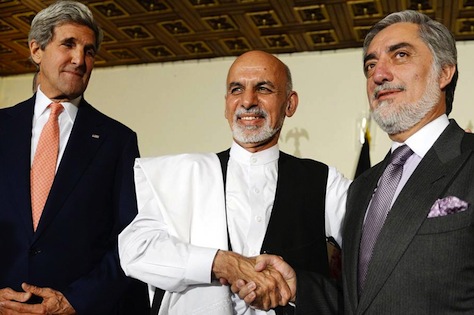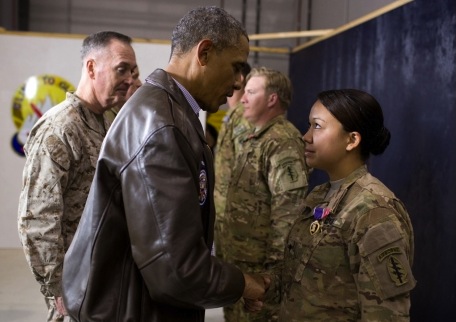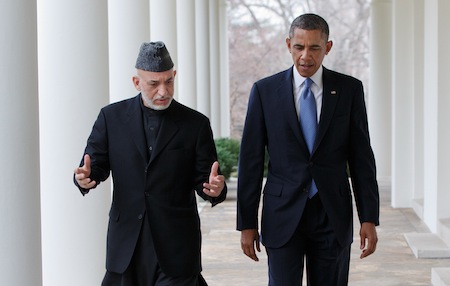Over the weekend, US secretary of state John Kerry brokered a promising deal between the two candidates in Afghanistan’s botched, contested June 14 presidential runoff between former foreign minister Abdullah Abdullah and former finance minister Ashram Ghani Ahmadzai, both of whom have alleged fraud in the runoff. ![]()
It’s not an incredibly bad deal, and if it sticks, it will provide Afghanistan with a strong government, acceptable to supporters of both Ghani and Abdullah, that brings to power the largest and, historically dominant, ethnic group, the Pashtun, with a significant role for the second-largest group, the Tajiks, which dominate northern Afghanistan and form the plurality in Kabul, the Afghan capital.
Under the terms agreed among Kerry, Ghani and Abdullah, every single runoff vote will be audited centrally in Kabul by international observers, with representatives of both the Ghani and Abdullah campaigns present. The winner will thereupon form a national unity government that, presumably, will include supporters of both campaigns.
* * * * *
RELATED: Is Ghani’s Afghan preliminary electoral victory a fraud?
RELATED: Afghanistan hopes for calm as key presidential election approaches
* * * * *
Abdullah won the first round on April 5, by a wide margin of 45.00% to just 31.56% for Ghani, on the basis of 6.6 million voters. In the second round, preliminary results show that Ghani won 56.44% to just 43.56% for Abdullah, on the basis of 7.9 million votes — a significant increase in turnout.
It marks an astounding turn of events for Ghani. It’s especially astounding in light of the endorsement of the first round’s third-placed candidate, Zalmai Rassoul, a former foreign minister who is close to outgoing president Hamid Karzai, and who endorsed Abdullah before even all the votes of the first round had been counted. Rassoul’s support was meant to bring along key Pashtun tribal leaders, close to Karzai and Rassoul, in the southern Helmand and Kandahar provinces.
But the deal doesn’t tell us exactly what the auditing process will entail, and whether the Independent Election Commission, whose director resigned in the wake of the second round after Abdullah lodged credible, serious complaints, will play a significant role in the audit. It doesn’t obligate the eventual winner to including the failed candidate in the eventual ‘unity’ government, nor does it detail what happens if, after six months, the unity government unravels.
More fundamentally, the audit may still not tell us which candidate actually won the second round of the election. Continue reading Will Kerry’s deal with Afghanistan’s presidential contenders work?



